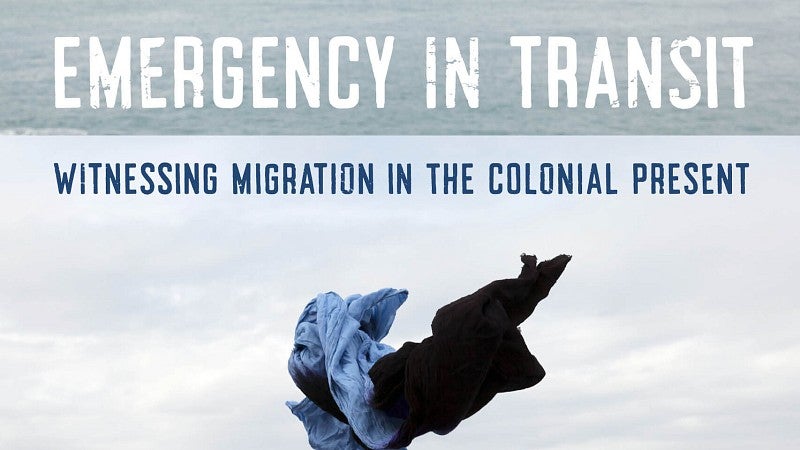
Nov. 14, 2024 - 9:00am
Migration “crises” continue to make headlines, but according to Professor Eleanor Paynter, the ways we often talk about migration in public debate rarely line up with the experience of migrating across a border.
“What we call a migration ‘crisis’ appears sudden,” said Paynter, assistant professor of Italian, migration and global media studies in the Schnitzer School of Global Studies and Languages for the Department of Romance Languages. “But these aren’t isolated or singular events. In Italy, migration has been treated as an unforeseen crisis since the early 1990s.”
That rhetoric, coupled with the fact that Italy has yet to fully recognize its colonial past, means that people arriving today from former European colonies, Black Africans in particular, are often seen as embodying “crisis” rather than as people in need of international protection, as future Italian citizens or as people who already have longstanding connections to Europe.
Paynter wrote about this misconception in her new book, Emergency in Transit: Witnessing Migration in the Colonial Present, which comes out November 2024 with the University of California Press’s Critical Refugee Studies series.
A shift in migration from rescue to crisis

Emergency in Transit is based on research Paynter conducted following Europe’s 2015 declaration of a “refugee crisis.” Over several years, she visited reception centers and camps, speaking with migrants, volunteers and aid workers as Italy shifted from prioritizing migrant rescue to increasingly criminalize migration and aid. Using these testimonies and others in film, art and writing, Paynter shows how what she calls an “emergency apparatus” reproduces racist and colonial practices as it shapes the lives of people crossing borders.
"Exploring the multiple dimensions of danger that compose the transit of migrants to and in Italy, Paynter lays bare the workings of an emergency apparatus that perpetuates itself,” said Sandro Mezzadra, coauthor of Border as Method, or, the Multiplication of Labor (with Brett Neilson). “But this passionate and timely book does something more than that. Mining memories and testimonies, it illuminates possibilities for a different future."
Reimagining migration in modern society
Paynter hopes Emergency in Transit will inspire readers to think differently about how migration is framed within this current “age of emergency.” The book will be available in paperback and open access versions and offers readers a chance to engage with a pressing issue in today’s world.
—By Jenny Brooks, College of Arts and Sciences
